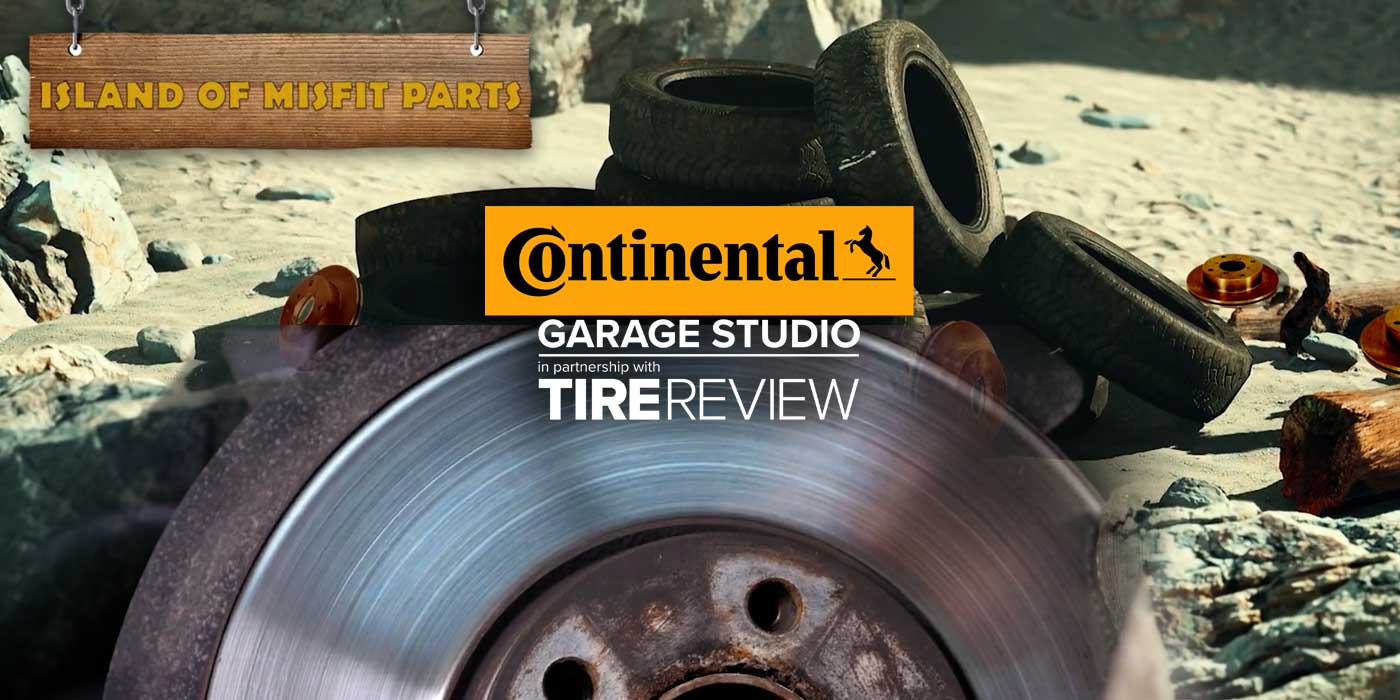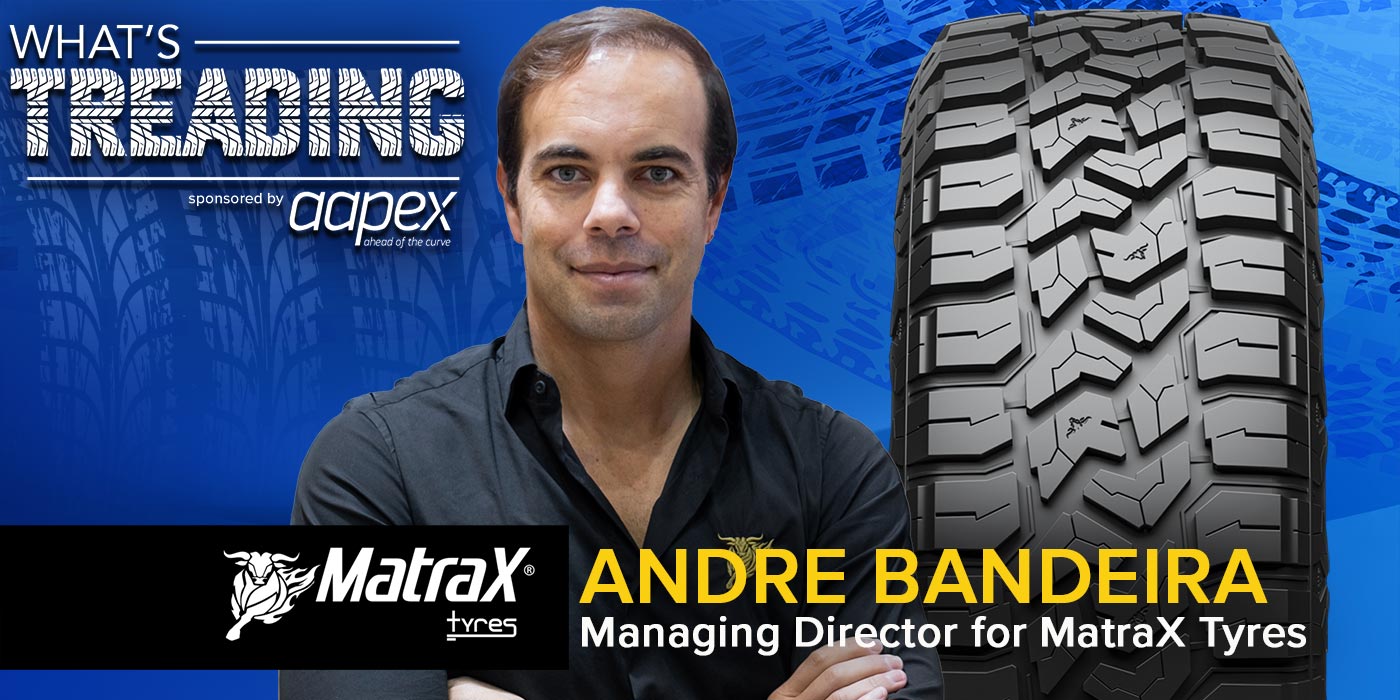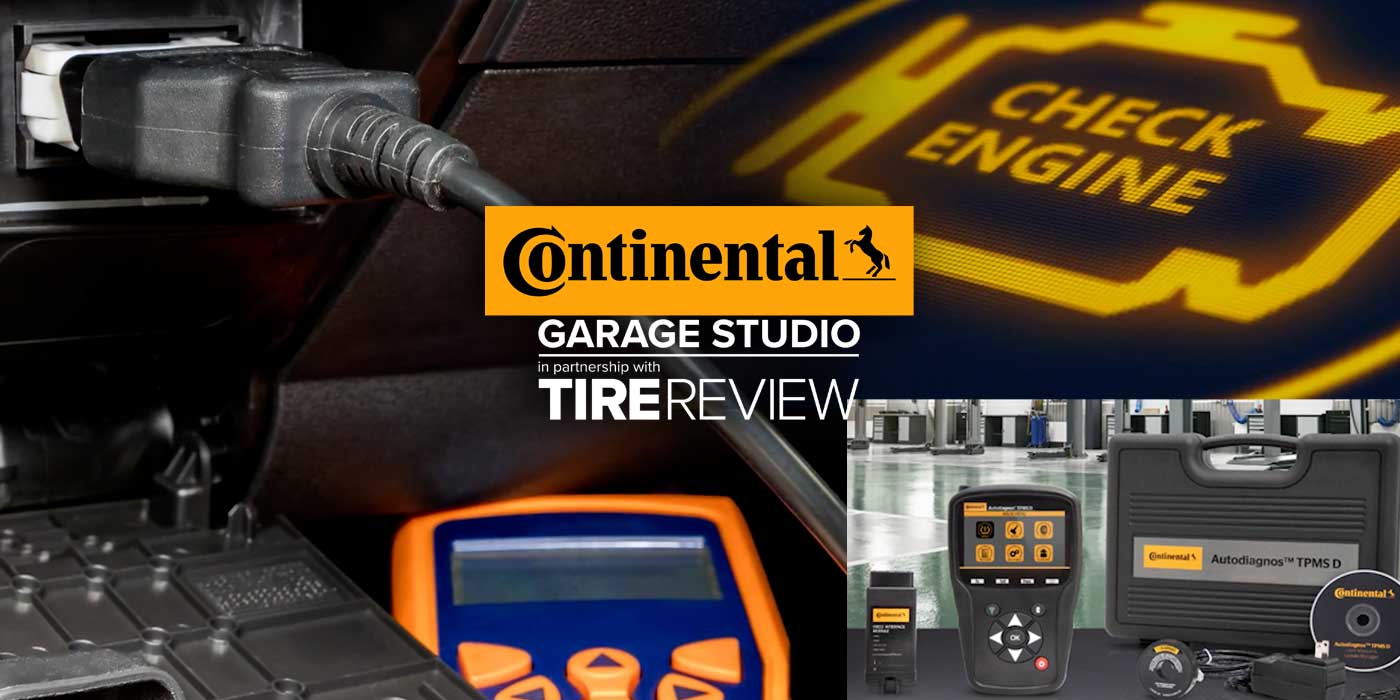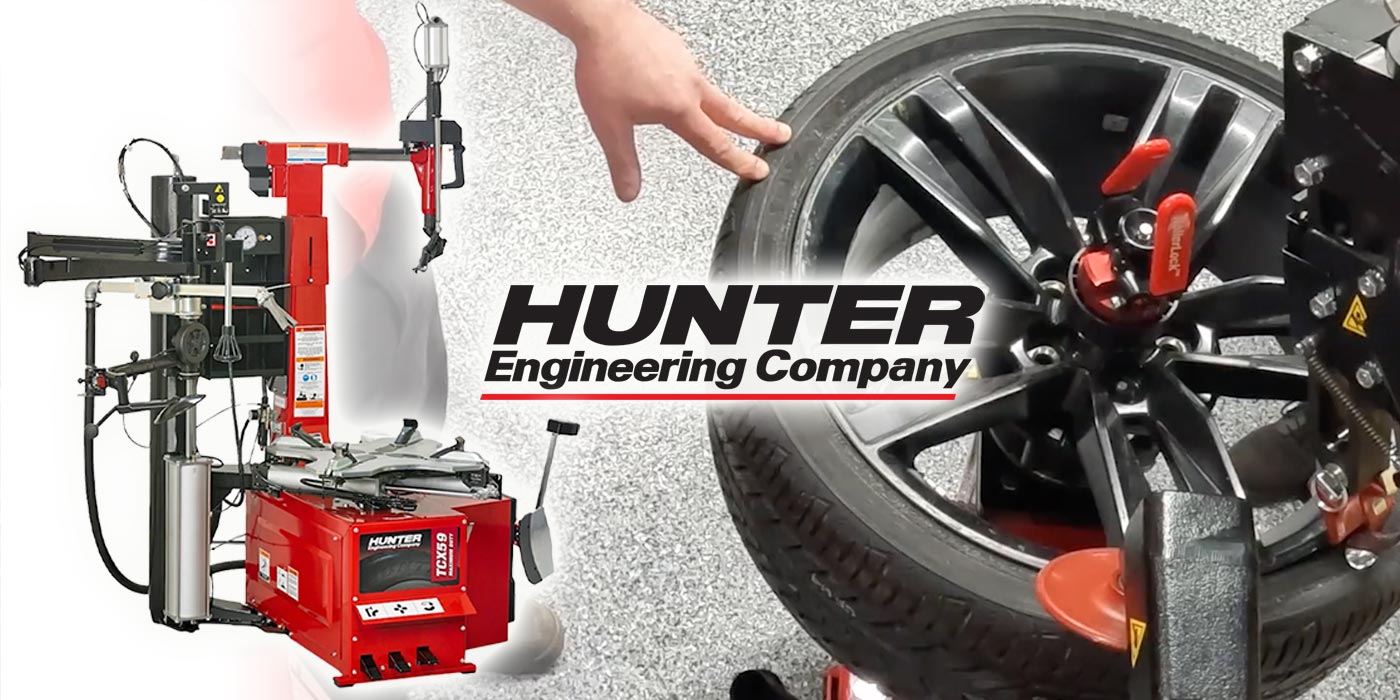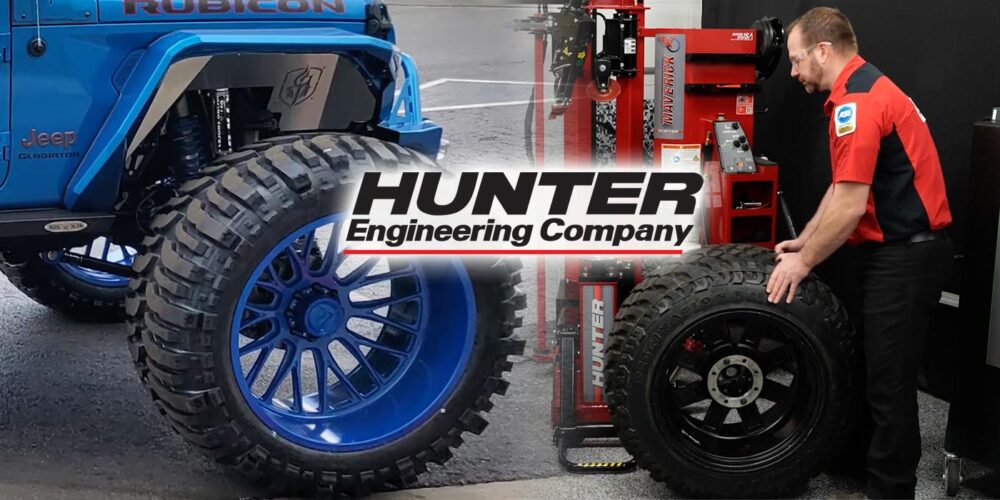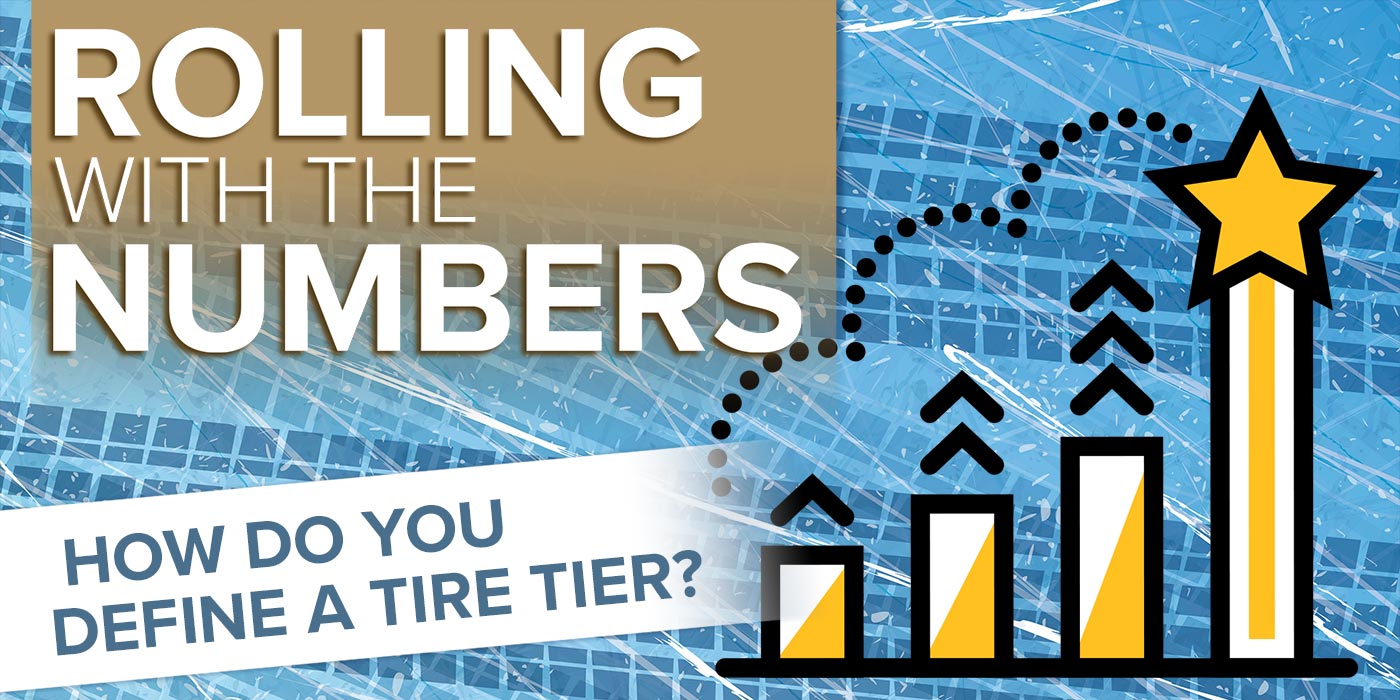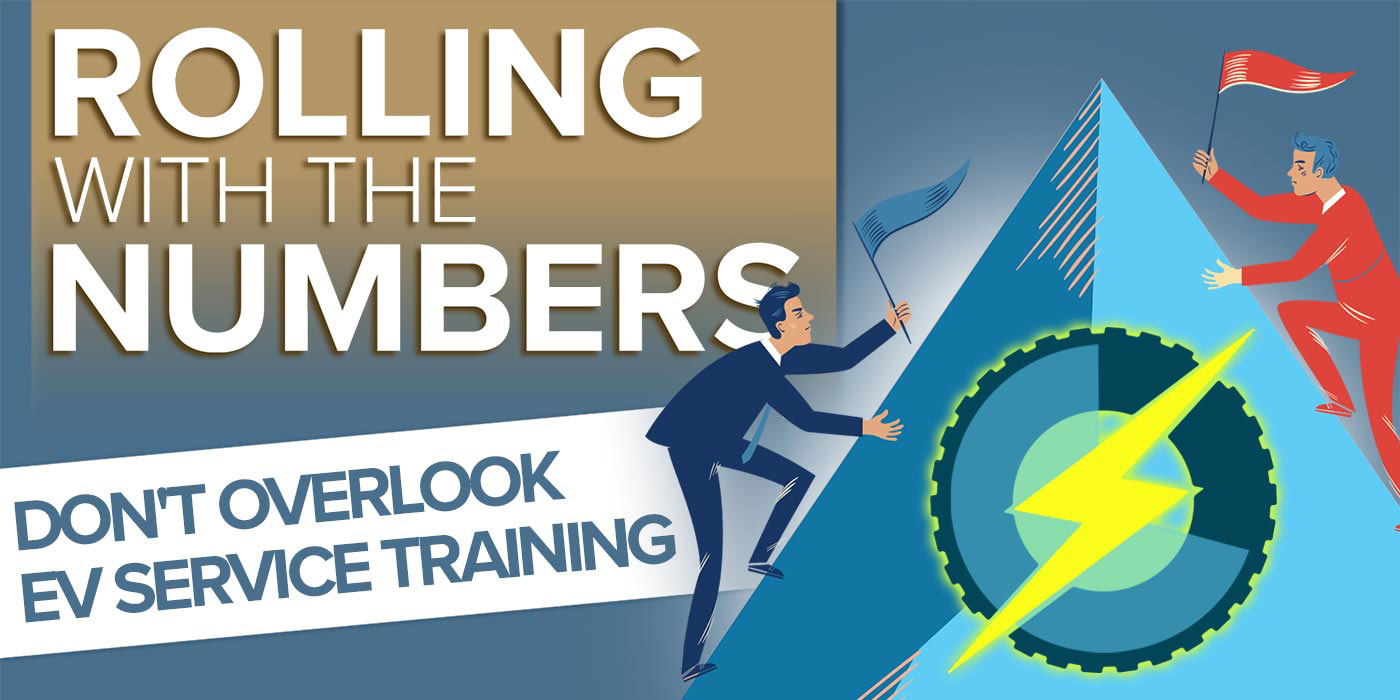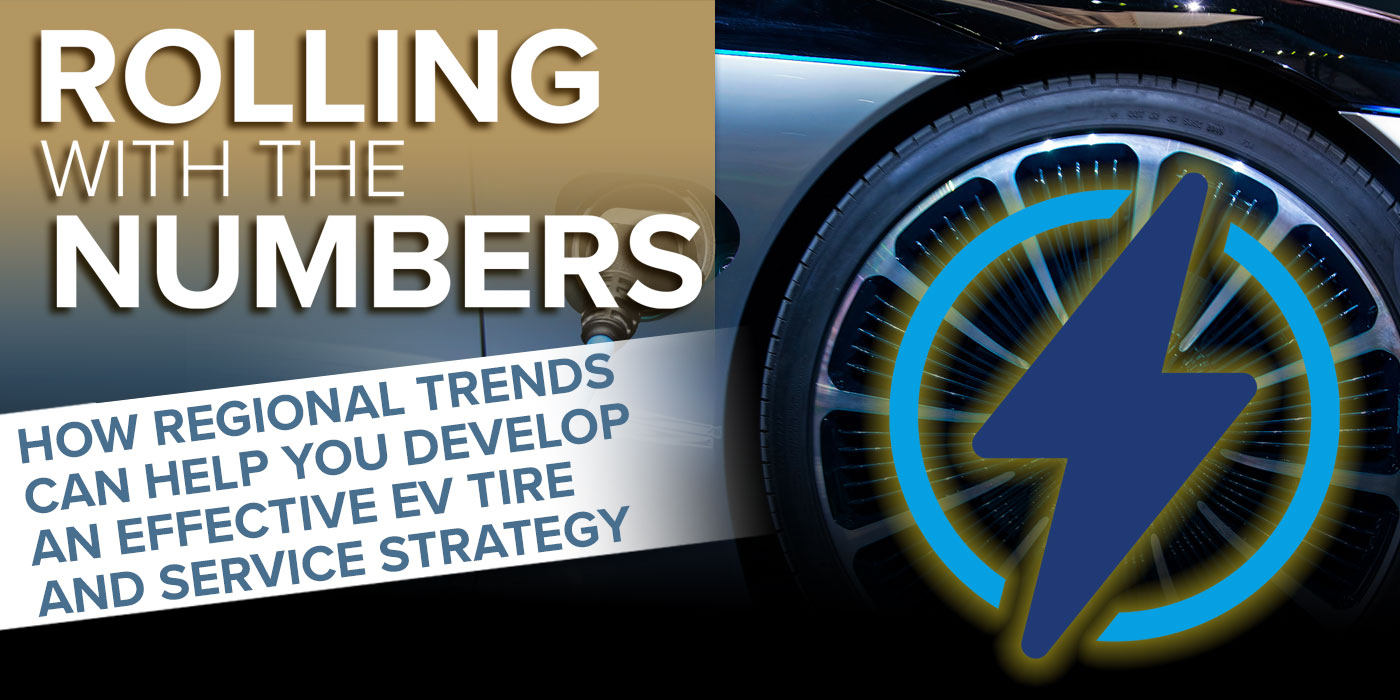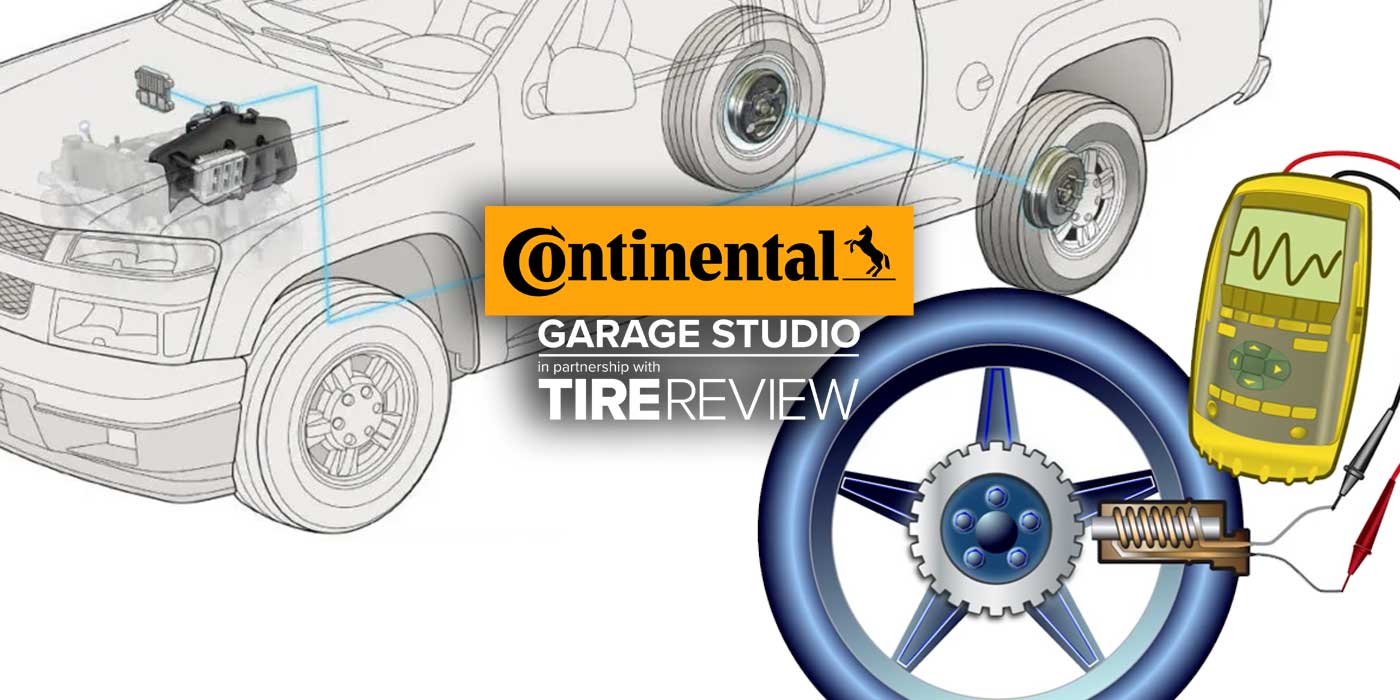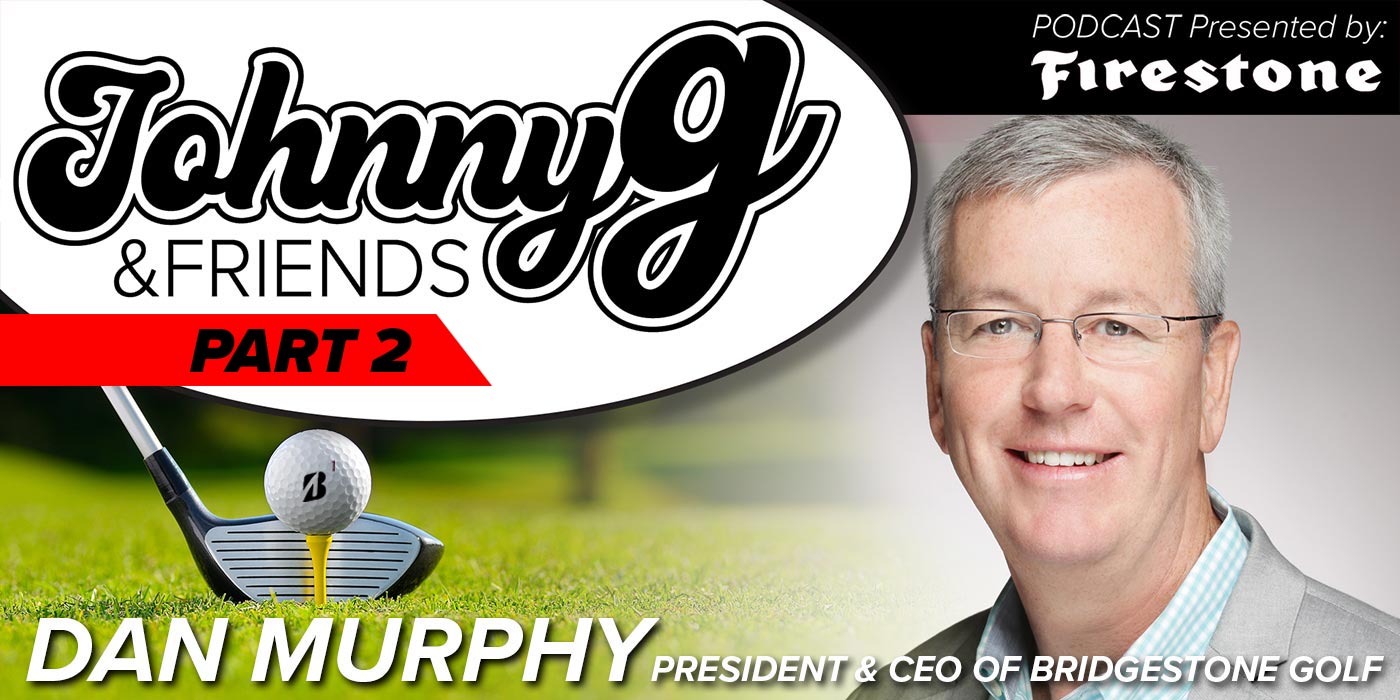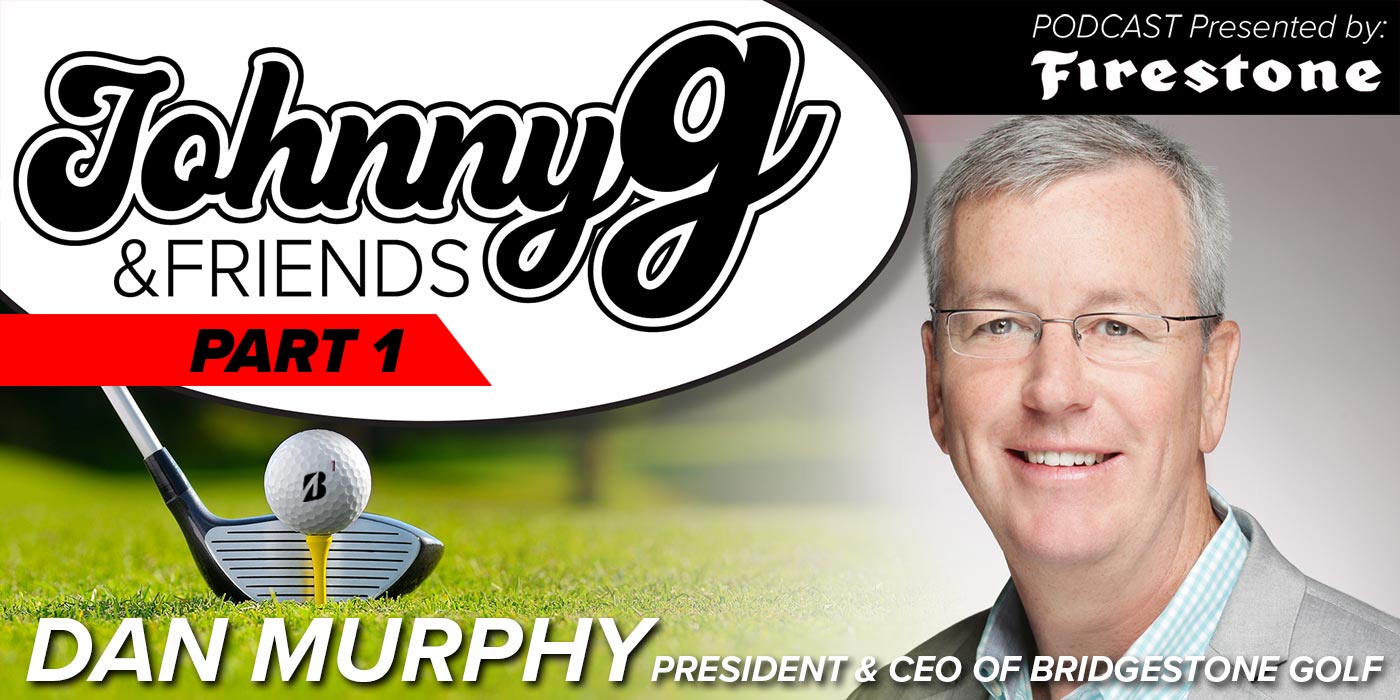Over the past year or so, Tire Review has collected a ton of data from tire dealers. And every time we do, we pass it right back on to you in our Rolling with the Numbers series so you can grow your business and increase your revenue opportunities. However, all that data can get overwhelming, and it’s hard to know what data to use in what order to make those little improvements that keeps your tire business rollin’.
Every tire business was built under unique circumstances, so it’s difficult for the Rolling With the Numbers team to know what data is useful to aid in your particular business challenges – but that doesn’t mean we can’t make a guess! In this episode, each member of the Tire Review editorial team ranks the order in which we believe tire dealers should address particular topics in their shops. These include:
- Making a Succession Plan
- Improving Technician Benefits
- Advertising to New Customers
- Advertising to Established Customers
- Leaning into sales/services that make you the most profits today
- Improving sales/services that make you the least profits today
Here’s the transcript of the show:
David Sickels: Hello, and welcome back to Rolling with the Numbers, where we present you with our data that gives tire dealers information to keep their tire businesses rolling, based on information conducted with our independent tire dealer audience. I’m David Sickels, senior editor for tire review.
Christian Hinton: I’m Christian Hinton, associate editor for tire review.
Maddie Winer: I’m Maddie Winer, editor of tire review.
David Sickels: So today we’re going to take a slightly different approach to our show. So far, we’ve given you all this great data based on your responses from the independent tire dealer community, and we’ve told you how you can use it. But we haven’t gotten to the real hard part. What order should you address this data? I mean, we’ve all got home improvement projects. You got to fix the drawer. You got to fix the door. You’ve got to take out the trash. So what do you do? What order do you do it in? That is exactly what we are looking at today.
David Sickels: So, we each took the night to take a look at six focus areas, things that tire dealers can do to improve their businesses. And we’ve listed them as our own personal top five lists using our entirely official Babcox Media Tire Review note pads. You heard that right. Six focus areas and we’re making a top five. That means one item isn’t going to make the list for each one of us. These focus areas are making a succession plan, improving technician benefits, advertising to new customers, advertising to establish customers, leaning into sales and services that make you the most profits today, and improving sales and services that make you the least profits today. So, let’s discuss. Maddie, I’m interested to see what you’ve got.
Maddie Winer: Here we go. All right. So, my first one was leaning into sales and services that make you the most profits today. Obviously, this should be the most important because it’s what brings in money to independent tire dealerships. I mean, the top three, what we’ve learned from our tire dealer data is the top three things that make tire dealers the most money are of course tires. And then alignments, obviously that goes hand in hand. And then the sale of brake pads. So, focusing on those things that truly make the most money is just good for business.
Maddie Winer: For my second point, I had improving sales and services that make you the least profits today.
David Sickels: So you’re all about profits.
Maddie Winer: Why not profits? So improving sales and services that make you the least profits today. This is important because this can help you build your business. If you look at the things that aren’t making you the most money, see how you can improve them to rise to the occasion, to rise up to the things that make you the most money. We found out that 58% of the dealers who took our survey say they increased their labor rate for vehicle service this year and 92% increase their rates within the past three years. That’s significant because a lot of tire dealers and auto repair shops out there, sometimes they’re not charging a significant labor rate. And that’s something that can make the dealership more profit, can give technicians, which is, goes into my next point. More of an incentive to work there, getting more money and things like that.
David Sickels: The technician benefits, which you’re about to get into here. That 92% number is really significant. I feel like. Because obviously, we all know there’s a technician shortage going on here. And if you are one of that 8% who hasn’t increased labor rates in the past three years, that is probably something that you’re going to need to start to think about, pretty soon here, because technicians, they’re hard to come by as it is.
Maddie Winer: And then, tire dealers can do so many other things. Not just salary, but paid training and certifications, bonuses. Having a free toolset for the technicians. So there are so many things that tire dealers can do to really improve technician benefits, beat the technician shortage, and have and retain a great staff.
Christian Hinton: I think it can help retain retention rates as well. I mean, having more technician benefits means they probably will stay longer. They feel like they’re more valued to the company.
Maddie Winer: Yeah, for sure. Oh, a hundred percent. So, for number four, I got advertising to established customers and customer retention. I mean, you talked about technician retention, but customer retention is huge. For tire dealers, what we found out in our survey data was that repeat customer sales revenues make up 71% of independent tire dealer business on average. I mean, that’s huge. That’s more than two-thirds of business. So focusing on those established customers is really important.
David Sickels: That’s a good point. How would somebody go about doing that? What are some of the best ways that we found?
Maddie Winer: Well, word of mouth is actually the main way tire dealers say that. That’s the best marketing tool for them.
David Sickels: Yeah. So literally, as they’re walking out the door, just be like, “mention us to your friends.”
Maddie Winer: Yeah, exactly. Reviews are another, a portion of tire dealers do Facebook and social media advertising, but not a ton. Word of mouth seems to be the biggest driver of traffic for them.
Maddie Winer: Then I had last, making a succession plan because dealers are at different points in their business journey. And for some, this is a huge thing. For others, not as much. So yeah. I put that last because it’s hard to determine where a dealer’s at and what their situation might be.
David Sickels: So what did you leave off? Advertising to new customers, is that right?
Maddie Winer: Advertising to new customers. Yes.
David Sickels: So don’t even worry about new customers.
Maddie Winer: Well…
David Sickels: Kick them out the door!
Maddie Winer: So see, that’s why this was so hard because I was like… Established customers, they have your back. They know you. And so it’s, keeping them, but that’s my list. I want to see what you guys have.
Christian Hinton: I’d love to show mine if that’s okay. You left off advertising to new customers. That was first on my list. That’s right. Advertising to new customers should be a top priority, especially in today’s digital world. Now, it is more important than ever to take advantage of Facebook pages, social media, and word of mouth is great advertising. What happens when those customers go away, move, some pass away, whatever happens. You need to make sure you are constantly achieving for… Sorry. You need to make sure you’re constantly going for new customers.
David Sickels: You’ve got a dark, dark outlook on customers.
Christian Hinton: Well, look. Look, things happen. We all know things are very uncertain. And one certain thing is, if you continue to advertise online, digitally to new customers and do specific target advertising, that’s the best way to do it.
David Sickels: We have seen good data on target advertising, working really well.
Maddie Winer: And we’ve found 27% of tire dealers said they don’t use a website to advertise their business. So that could be an area of improvement for a business.
Christian Hinton: Even having your name on a Google search engine, even if it’s on the bottom or the second page, it has such a huge difference to your business. So, the second one is leaning into sales or services that will give you more profits today. So basically what that means is you want to make sure that you’re advertising, utilizing advertising, utilizing new equipment, to get more customers into your business. Get more profits, right? If you’ve got updated equipment maybe a shop down the street doesn’t have, or if you do more social media advertising than maybe the shop down the street doesn’t do, you’re already getting an advantage over them in that community. So, that’s something that’s very important to get profits today. The third one I’ve got is improving technician benefits. We talked about it a little bit.
David Sickels: You guys were on the same page.
Christian Hinton: Yeah. Our actually last three, I think are the exact same.
David Sickels: Are they really?
Christian Hinton: Yeah, I believe so.
Maddie Winer: Yeah. Actually, they are.
Christian Hinton: Yeah, so improving technician benefits. Yeah. So like we said, the labor shortage is a huge problem. If you give technicians more benefits, if you guarantee them either healthcare or that could be like you said, days off, more vacation days, whatever the case is, PTO. Giving them more benefits, I think will really help with retention rates. They’re already so low. And I mean, people are just leaving their jobs.
Maddie Winer: Talking about the technician shortage, we found from our data that 59% of tire dealers who took our survey said it’s extremely difficult to fill tech vacancies. Only 2% said it was extremely easy. So it’s definitely an issue.
Christian Hinton: Absolutely. So my fourth was advertising to established customers. So I had new customers up here. Advertising to established customers is very important. Word of mouth is important. People use it all the time. It’s the best piece of advertising, but the perfect companion to word of mouth is a website, is a social media presence, and ensuring that you’re advertising to those established customers online. Or if you know which, the majority of cars make or models that come in, you can send out flyers that maybe sort of hone in on that specific cars service or whatever the case may be.
Christian Hinton: So you just need to make sure that you are advertising to established customers, not as important as new customers because again, they’re already established, they know your business, they already know the value of your business. And number five, making a succession plan. So this one is very obvious. If you don’t have a succession plan, it’s very, things are very uncertain right now. If you don’t have a plan in place to have someone take over, it might be bad news for your shop. So having a succession plan I think is really important.
David Sickels: And what’d you leave off?
Christian Hinton: I left off leaning into sales services that make the least profits today. That just didn’t make any sense to me. I think you want to utilize profits. You want to make the most profits. You need to, you want to make sure you’re getting the most out of the services and the sales that you’re doing. I think if you’re kind of focusing on not as many profits and you’re leaning into old services or old things that you’ve done, it might not get you the most profits.
David Sickels: And according to our data, the bottom three for profitability among tire dealers who took our survey are battery replacements, belt replacements, starters and alternators. So you’re saying, don’t worry about that stuff. I mean, obviously if it comes in, take care of business, but…
Christian Hinton: Don’t make it a big priority in advertising or anything like that. Or with sales or specials.
Maddie Winer: Yeah. Capitalize on what makes you money.
David Sickels: All right, guys. I’m about to blow your minds, because, my number one is making a succession plan.
Maddie Winer: Why?
David Sickels: I like your number ones. If I finish my day at Babcox today, I’m feeling good. I’m feeling great. I go out into the parking lot and there happens to be a bus driving by…
Christian Hinton: Oh no…
David Sickels: The unfortunate happens. You can imagine. I’m not going to go into details, but what’s my succession plan? I don’t know. I’m not planning on retiring anytime soon.
Maddie Winer: So plan for the worst.
David Sickels: Plan for the worst is what I’m saying. If you don’t have a succession plan, you might not be in the market to get out of the industry, but if you don’t have a succession plan, things could be bad. And not only that, but this is probably the most clear-cut easiest thing to do, arguably, on this list. Because you make your succession plan and then you’re pretty much done. I mean, yeah. Keep it up to date as the years go by. But it’s not an ongoing thing, like nebulous technician benefits. What do I need to do? What do I need to do about advertising?
Maddie Winer: Continuous improvement.
David Sickels: It’s something that you can just eliminate from your list and move on to the next thing.
Christian Hinton: I think it’s really important too because I think all businesses got caught in an unfortunate spiral when COVID hit because they didn’t have any plans for uncertain events like that to happen. So making a succession plan it’s again, with times more uncertain now than ever, that’s a very important one. So I do agree.
Maddie Winer: What’s interesting though is that 50% of the dealers we surveyed, around there, said they don’t have a succession plan in place.
David Sickels: For context, that’s one in two.
Maddie Winer: Yeah. Thank you.
Christian Hinton: Thank you, David. That was very insightful.
Maddie Winer: And a succession plan is really, like you’re saying, important because if someone approaches you to sell your business, which we found 49% of dealers that have taken our survey said that they’ve been approached to sell their business. It’s good to have at least a plan in place of, here’s where it’s going and work from there. So having, I guess a plan in place to work from makes sense as well.
David Sickels: And I think it’d be really interesting to see what the cross is from the 50% who have a succession plan and the 49% who have been approached to sell their business. How many of those folks have a succession plan in place that can help them in making those decisions? If you already have that succession plan, then maybe you can approach that in a different kind of light.
Maddie Winer: Good point.
David Sickels: So that’s my number one. Number two, improving technician benefits. That is my number two because as we have discussed at length already, the technician shortage is a real thing. Very, very difficult. 59% of tire dealers say it’s extremely difficult to fill those tech vacancies. If you don’t have great benefits, if you don’t have the salary that they’re looking for, if you don’t have the 401k or whatever it might be, they’re going to go down the street. They’re going to go somewhere else and you need everything you can in today’s times. And I mean, technicians are, I mean, I’ve said this before, they’re the lifeblood of your business. If you don’t have them, you can have the best equipment, you can have every tire, every skew anyone is ever looking for. But if you don’t have the technicians, what are you doing?
David Sickels: Number three, advertising to established customers. I took a different approach than you did, which I very much respect where you were coming from. I think it does make a lot of sense, but for me, those established customers who do know you, you want to hammer home every day that your business is the place to go. If they’re on the other side of town and they’re running errands and they think maybe I’ll get my oil changed at this place. You want to be so drilled into their consciousness that they’re not going to go there out of just simplicity or it’s the easier choice.
David Sickels: They’re going to stay loyal to you. And I think that’s really huge. I mean, I’ve definitely been there. I have a tire dealer who I love, who I visit every time I have issues with my car and they’re fantastic. I’ve definitely been on the other side of town and thought, I got to get my oil changed anyway, might as well stop into the Quick Lube or whatever and just roll through. But, I really like these guys and I want to give them my business. So I don’t know. That’s the perspective that I come from.
Christian Hinton: Sure, understandable.
Maddie Winer: You’re an established customer.
David Sickels: I am an established customer.
Christian Hinton: Absolutely. And they know the value of your business. They really do, already. And with newer customers, it’s harder to explain that value and to show the value. So they already know what they’re getting with their investment with their company. So I understand.
David Sickels: And also, that being said, advertising to established customers, if they’re following you on Facebook or wherever you might be, that is free advertising.
David Sickels: Leaning into sales and services that make you the most profits today. Again, we’ve already really talked about this quite a bit, but leaning into those tire sales. If that’s what’s making you profits, then hit it as hard as you can. Your advertising should be directing folks to those tire sales. If you’ve got alignments at number one, that’s what you should be advertising. You want everyone to know that you give the best alignments in town.
Maddie Winer: Or a tire package, you know?
David Sickels: Yeah, exactly. A hundred percent. And then my number five, improving sales and services that make you the least profits today. Like Maddie, I value profit. And I believe that this, although lowest on my list, should not be removed from the list because it’s still important. Those, what do we have? Battery replacements, belt replacements, starters, and alternators at the bottom three.
Maddie Winer: They can still bring in money.
David Sickels: So, what I left off my list was advertising to new customers. Again. No offense, Christian. No offense.
Christian Hinton: Sorry to say you’re wrong, but that’s okay. That’s all right.
David Sickels: No, no. And my thought there is that statistic that you brought up earlier, that 71% are established customers. So that’s 71% of your profits coming through your door, on average, every day, is coming from those repeat customers.
David Sickels: So that being said, I think it just makes sense that you should be focusing more so on that chunk of change… A bird in the hand, as they say.
Maddie Winer: There you go. It’s interesting looking over these. All these go together, but making sure you’re set for the future, succession planning, making sure you’re taking care of your already established customers, taking care of your technicians, and then looking at continually studying your business to see where you can make more money and boost profits.
Christian Hinton: Be the shop that people brag about. Be the shop that your technicians brag about. Be the shop that your customers brag about. And how you do that is basically by going through these steps.
David Sickels: It’s really interesting because we all have our own version of how to do that. And in what order we would do that. And so I think it just kind of goes to show that there’s no right answer here. I mean, we all have our own opinions. We all work in this industry and we’re talking with tire dealers every day. So there’s no “A, B, C” to success. You just have to figure out what works best for you. Look at, I mean, this data that we’re pooling is, it’s an average. I mean we’re taking all this data from what people are saying. And we’re getting the average amount. So, maybe tires aren’t your number one when it comes to your shop. Maybe you’re not worried about technicians. Maybe you’ve got all the technicians in the world and they’re happy where they are and you don’t need to worry about those benefits. So it’s obviously a case-by-case basis, but I just thought it was really interesting. And by the way, if we hadn’t mentioned this already, I had no idea what these two had on their list. This was just as much of a surprise for me as it was for you.
David Sickels: So, for more business intelligence data to help boost tire dealer profitability, be sure to watch out for our next episode of Rolling with the Numbers. If you subscribe to our newsletter, it’s in there. Look out for it. Until next time.
All together: Keep on rolling!

